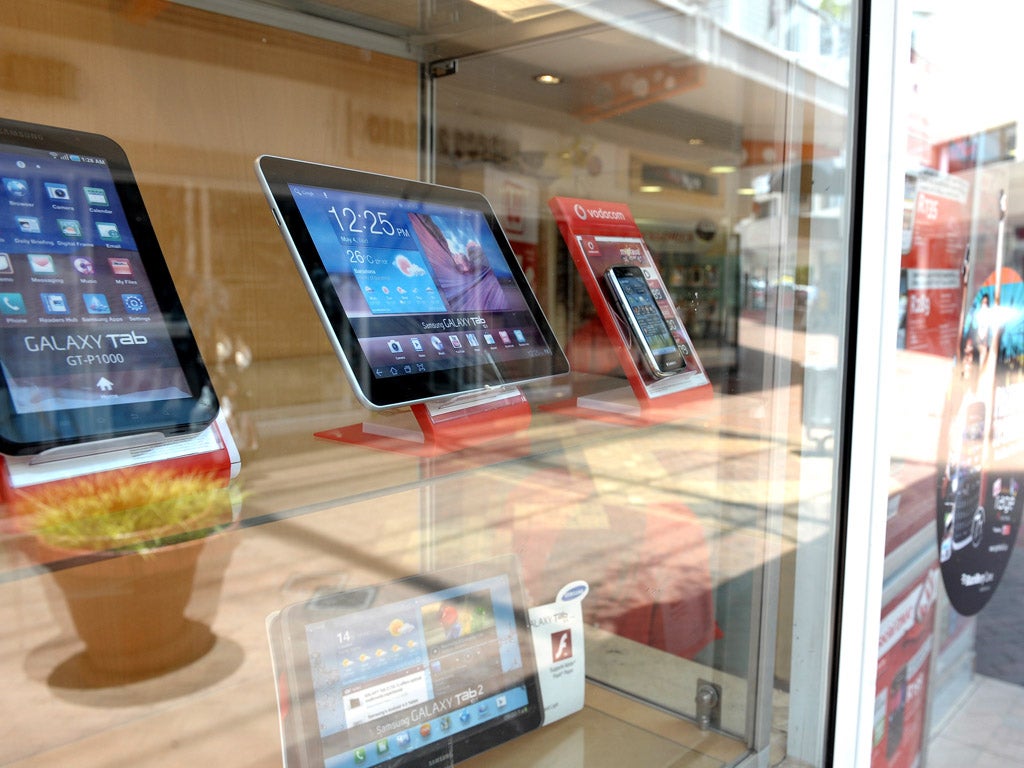4G or not 4G? If you want a fast, affordable connection, Three's Ultrafast 3G network is better
Whether to shell out for an overpriced LTE contract, or embrace Three’s new ‘Ultrafast’ 3G network until 4G matures and becomes more affordable? Our expert casts his vote

After EE’s recent push to promote their new 4G LTE mobile network in the UK, I took some time to compare their price plans, and theoretical data speeds, against Three’s recently announced ‘Ultrafast’ 3G network.
4G vs Three’s dual bandwidth 3G Network
Rather than wait until next years 4G wireless spectrum auction, Three UK decided to upgrade their existing 3G network to take advantage of a wireless technology called DC-HSDPA, which stands for ‘Dual cell/carrier High-Speed Downlink Packet Access’.
In layman's terms, DC-HSDPA technology doubles the bandwidth of the 3G network, offering twice the download speed found on Three’s current HSPA+ network. The beauty of such a technology is that Three have been able to integrate it seamlessly into their current 3G network. Three’s DC-HSDPA enabled infrastructure already covers 40% of the UK, with 50% coverage promised by Christmas.
In comparison, EE’s 4G network currently covers just 11 major UK cities, which will expand to 16 by the end of the year. So unless you spend all of your time in one of the cities that support 4G, you’ll be dropping back down to standard 3G whenever you lose LTE coverage.
Three’s improved network is proving to be very impressive so far, but their main hurdle is persuading the general public that their 3G is currently better than 4G. Luckily for Three they have the advantage of price.
It’s not all about coverage, let’s talk money
With 4G price plans ranging from £36 for 500MB, up to £56 for 8GB, EE’s 4G prices are far from attractive. To put EE’s lowest 4G data allowance into perspective, 500MB will get you less than 5 episodes of Eastenders on the BBC iPlayer, and that’s when set to ‘mobile quality’. That doesn't look very pretty on a modern high resolution smartphone like the iPhone 5 or Nexus 4.
Let’s compare the price of a 4G/DC-HSDPA capable smartphone, in this case the iPhone 5, in order to demonstrate the difference in pricing across both networks with the same monthly cost.
A 16GB iPhone 5 on EE’s lowest priced 24 month tariff will set you back £36 per month, with an upfront fee of £179.99. This plan offers just 500MB of mobile data.
The same 16GB iPhone 5 on Three’s DC-HSDPA enabled 3G network, will also cost you £36 per month on a 24 month contract. The upfront cost however, is just £99. That’s £81 cheaper than EE’s equivalent offering from day one. With this plan you’ll also get UNLIMITED mobile data.
To summarise, at the same monthly price as EE’s cheapest 4G tariff, you're getting Three's ‘One Plan’, their top-tier price plan with completely unlimited data. On top of that, you’re saving £81 before you even start using the contract.
What’s more, if you’re already on Three and have a DC-HSDPA capable device, such as the iPhone 5, iPad 4, or Nexus 4, then you’ll already have access to Three’s ‘Ultrafast’ network. Because DC-HSDPA is being integrated into the current 3G network, you’ll have access to the upgraded service without any additional charge.
OK, so how do the speeds compare? 4G is obviously much faster, right?
Not really, no. Let’s ignore theoretical speeds because they have no validity in the real world. Instead let’s concentrate on what both networks state their realistic average speeds to be.
EE are claiming average 4G network speeds of up to 12MB per second, whereas Three claim their improved 3G network will offer average speeds in excess of 10MB per second. Right now, on a standard 3G phone, I get an average of 5MB per second. If Three’s network offers twice the download bandwidth of HSPA+, then the figures they are claiming are realistic.
Even at half those speeds you’ll easily be able to download a 500MB movie or game in under an hour. On EE’s cheapest tariff, you’d be out of data within a few minutes. With Three’s ‘One Plan’, you’d be able to carry on downloading whatever you want, with no data limits, for the duration of your contract. Not a bad deal.
Conclusion
Unless you really need the fastest mobile data connection possible for a specific reason, and money is not an issue, then EE’s 4G network is not ideal for you. On the other hand, if you’re like most of the population who just want a fast connection at an affordable price, with the widespread coverage, then I would highly recommend getting a DC-HSDPA capable smartphone or tablet on Three’s improved 3G network.
Three's network has been tried and tested, and users who are able to experience DC-HSDPA have seen impressive speeds already. EE's network is fast but needs to grow and mature.
Ultimately, with DC-HSDPA you’ll be experiencing mobile data speeds faster than the average UK home broadband connection, with coverage that far exceeds that of 4G. In a year or so, when 4G LTE coverage is more widespread, and competition drives down pricing, things will be a little different. Until then, in my opinion, DC-HSDPA is hands down the best choice.
Join our commenting forum
Join thought-provoking conversations, follow other Independent readers and see their replies
Comments
Bookmark popover
Removed from bookmarks